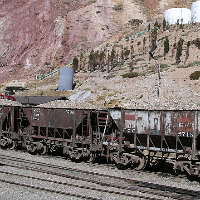LIMA, Peru -- With the entire western Amazon experiencing oil and mining booms, indigenous groups in the Amazon Basin and the Andes -- already fighting encroachment by loggers and small-scale farmers, or else struggling to obtain title for their ancestral land -- have now stepped up their resistance to efforts to exploit oil reserves, mineral deposits and other natural resources in and nearby their communities. In response, the region's presidents have accused native leaders and environmentalists who help them of everything from terrorism to being U.S. lackeys.
The trends cut across ideological divides. Peruvian President Alan Garcia has taken a neoliberal track during the past four years, whereas the president of neighboring Ecuador, Rafael Correa, is a socialist allied with Venezuelan President Hugo Chavez. But both leaders are facilitating the exploitation of natural resources in or near indigenous territories: At least half of the Peruvian Amazon and more than half of the Ecuadorian Amazon are covered by oil concessions, most of them superimposed on indigenous lands.
Both presidents have also reacted harshly to protests against such projects. Five leaders of Peru's principal Amazonian indigenous organization, the Peruvian Rainforest Inter-Ethnic Development Association (AIDESEP), are fighting charges of fomenting sedition and riots stemming from a 10-week protest they helped coordinate last year. Meanwhile, the presidents of Ecuador's two largest native groups -- the Confederation of Indigenous Nationalities of Ecuador (CONAIE) and the Kichwa confederation, ECUARUNARI -- were charged with terrorism and sabotage in response to a protest they led outside a summit of the Bolivarian Alliance for the Americas in the market town of Otavalo on June 25.

